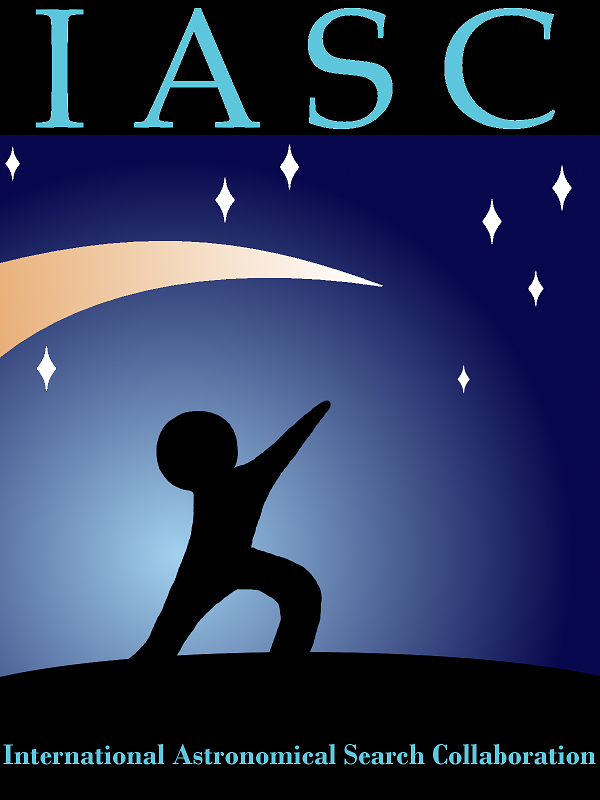The International Astronomical Search Collaboration (IASC) is a citizen science program that started in 2006, founded by Patrick Miller, a professor at Hardin-Simmons University in Abilene, Texas. This program makes use of telescopes all over the globe to capture images of the sky that are then distributed in schools and analysed by students in order to identify objects that move quickly against the background stars. Therefore, schools contribute to the discovery of new asteroids, helping to reduce part of the risk these objects may represent if they are eventually on a collision course with Earth.
In Portugal, the project took its first steps in 2007 with NUCLIO and Leonor Cabral (member of NUCLIO and, at the time, teacher at Cidadela High School, in Cascais). Through the years, hundreds of Portuguese schools, and also from Portuguese-speaking countries, joined the project, along with thousands of students, producing thousands of detections, many of which have received a provisional identification from the MPC (Minor Planet Center), the official organisation in charge of collecting observational data and cataloging asteroids.
Three of this objects have been confirmed as new asteroids, and the names proposed by the finders for two of them have already been officially accepted. Thus, we have Lusitano (2012 FF25), discovered by teams from four schools: Escola Secundária D. Maria II, in Braga, Escola Secundária Luís de Freitas Branco, in Paço de Arcos, Escola Secundária D. Inês de Castro, in Alcobaça, and Escola Secundária of Valpaços; Fado (2017 BF79), discovered by a team from Escola Secundária Dr. Manuel Gomes de Almeida, in Espinho; and 2012 KD19, discovered by a student at Escola Secundária D. Inês de Castro, in Alcobaça.
The coordination of the project in Portugal has been done by Ana Costa, a member of NUCLIO, and is now in the hands of Álvaro Folhas, professor of Physics and also a member of NUCLIO. New campaigns are launched every year, always with very good results!
Do you want to participate in the IASC/NUCLIO Asteroid Search Campaigns?
Please, contact Ana Costa or Álvaro Folhas via email: iasc@nuclio.org
2025 – 2026 Campaigns
-
- 15 OCT – 10 NOV 2025
- 14 NOV – 10 DEC 2025
- 12 JAN – 06 FEB 2026
- 11 FEB – 09 MAR 2026
- 10 APR – 06 MAY 2026
NUCLIO provides sessions to explain the process and the use of the Astrometrica software. Interested parties should contact us by the same email.
NUCLIO Space Hunters
We are also giving the opportunity to students who want to participate in the campaigns and do not have an Astronomy Club or a teacher to coordinate the activity in their schools. Through NUCLIO Space Hunters, students are guided to explore new objects in the Solar System, using unique data and specialized software to make incredible discoveries.
Contact us via iasc@nuclio.org
More information about IASC: http://iasc.cosmosearch.org/

